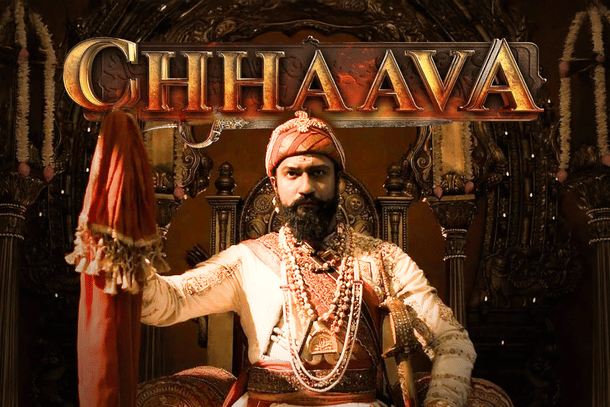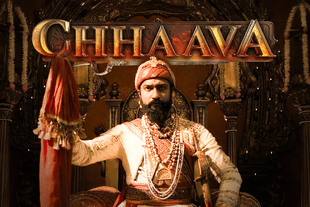Culture
'Chhaava' Is A Lesson From History — A Fitting Tribute To Swarajya, Chhatrapati Shivaji, And Sambhaji Maharaj
Sharan Setty
Feb 20, 2025, 02:21 PM | Updated 02:21 PM IST
Save & read from anywhere!
Bookmark stories for easy access on any device or the Swarajya app.


Chhaava dives deep into the life of Chhatrapati Sambhaji Maharaj, the son of Chhatrapati Shivaji, who gave his life fighting against the Mughal empire.
Chhaava isn’t just about war—it’s about loyalty, betrayal, and the price of freedom. Sambhaji Maharaj wasn’t defeated on the battlefield; he was brought down by those closest to him. His story is a reminder that history is often shaped by treachery as much as bravery.
The last 20 minutes are the film’s most powerful. Sambhaji Maharaj’s brutal torture at the hands of Aurangzeb’s men is hard to watch, but necessary to understand his sacrifice. The filmmakers stick to historical records—his eyes and tongue are plucked out, and he is kept alive for forty days, suffering for Aurangzeb’s pleasure.
I watched it in a South Delhi theatre, and even here, by the end of this scene, people were on their feet, giving a standing ovation.
That says something.
The final conversation between Aurangzeb and Sambhaji Maharaj is one of the best moments in the film. When Aurangzeb admits, “I wish I had a son like you,” the entire hall erupted in applause.
Vicky Kaushal, as Sambhaji, delivers a speech on Swarajya and why it matters—not just to the Marathas, but to everyone who believes in freedom. He predicts the fall of the Mughal empire, declaring that Swarajya will live on in the blood of this land and its people.
The impact of the movie may guide youngsters towards answers to a few fundamental questions that any reasonably curious mind may ask:
a. Why do we care about history and kings? Did not all of them fight wars to conquer territories? What's different then about the Marathas?
b. What sacrifices did our ancestors make for us to be free today?
c. How long had India really been under foreign occupation?
We often remember the heroes of 1857 or the freedom fighters of the 20th century, but this film brings attention to those who fought for Bharat long before that.
Despite a few flaws, Chhaava is a film that needs to be seen. The performances, especially by Vicky Kaushal and Akshaye Khanna, make it a gripping watch.
Vicky Kaushal nails the role of Sambhaji Maharaj. He carries the intensity, the wisdom, and the warrior spirit needed to do justice to this character. The flashback scenes where he learns from his father, Shivaji Maharaj, are particularly well done.
But the real show-stealer is Akshaye Khanna as Aurangzeb. His performance is exactly how you’d imagine the Mughal emperor—cunning, ruthless, and obsessed with destroying the Marathas. He embodies the role so well that every scene he’s in keeps you glued to the screen.
Rashmika Mandanna, on the other hand, doesn’t quite fit. Her portrayal of Sambhaji Maharaj’s wife lacks emotional depth, especially in the crucial scenes where she’s supposed to telepathically connect with him during his torture. It’s a casting choice that doesn’t work, similar to what we saw with Deepika Padukone in Padmaavat.
Visually, Chhaava is stunning. The battles, forts, and landscapes capture the 'epic-ness' of the story. The action sequences are well-shot and keep you on the edge.
Any letdowns? The background score. For a film of this scale, the soundtrack needed to be powerful, but it fell flat. Ajay-Atul, known for their goosebump-inducing compositions, should have been the obvious choice. A R Rahman, who did wonders with Jodhaa Akbar, could have also elevated the background score. Unfortunately, the music here doesn’t live up to expectations.
That aside, Chhaava remains an essential watch. Grab your young ones in the house and take them out to watch it. They will come out with the right questions of history.
Sharan Setty (Sharan K A) is an Associate Editor at Swarajya. He tweets at @sharansetty2.





